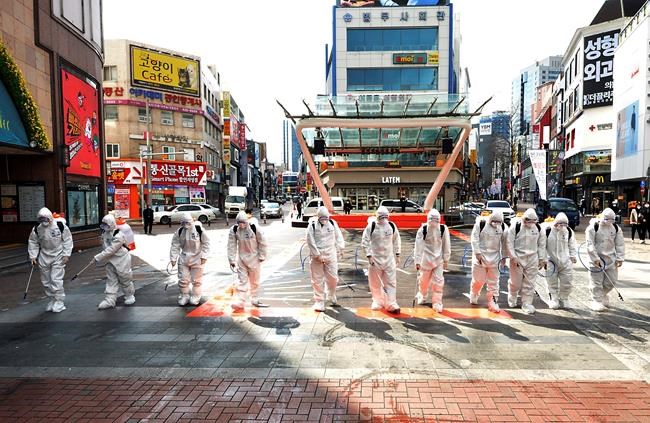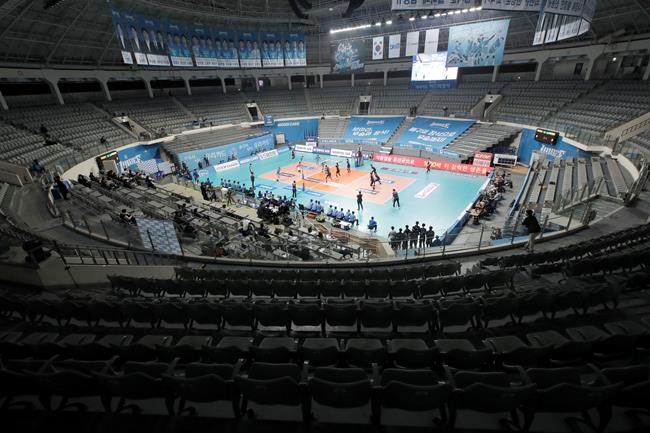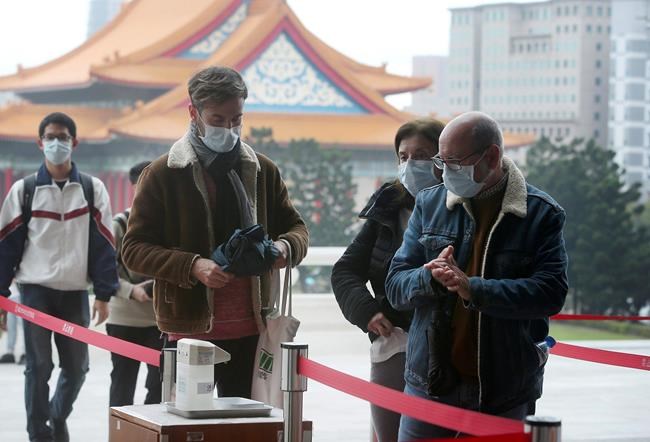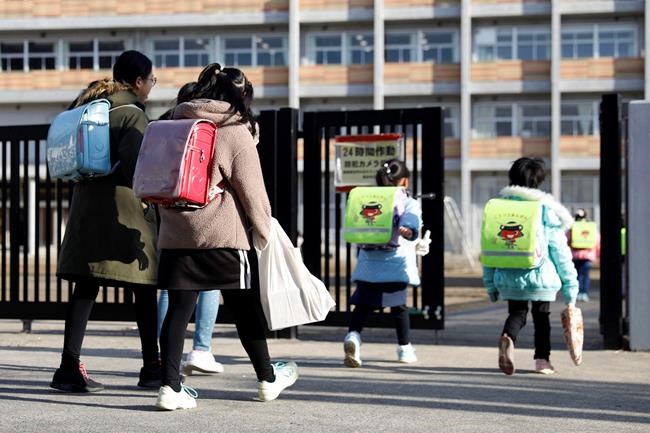World harshens its virus response as epidemic worsens by day
Advertisement
Read this article for free:
or
Already have an account? Log in here »
To continue reading, please subscribe:
Monthly Digital Subscription
$19 $0 for the first 4 weeks*
- Enjoy unlimited reading on winnipegfreepress.com
- Read the E-Edition, our digital replica newspaper
- Access News Break, our award-winning app
- Play interactive puzzles
*No charge for 4 weeks then billed as $19 every four weeks (new subscribers and qualified returning subscribers only). Cancel anytime.
Read unlimited articles for free today:
or
Already have an account? Log in here »
Hey there, time traveller!
This article was published 25/02/2020 (1521 days ago), so information in it may no longer be current.
BANGKOK – Saudi Arabia cut travel to Islam’s holiest sites, South Korea toughened penalties for those breaking quarantines and airports across Latin America looked for signs of sick passengers as a new virus troubled places around the globe.
With the number of sick and dead rising, the crisis gave way to political and diplomatic rows, concern that bordered on panic in some quarters, and a sense that no part of the world was immune.
“Viruses don’t know borders and they don’t stop at them,” said Roberto Speranza, the health minister in Italy, where northern towns were on army-guarded lockdowns and supermarket shelves were bare.

As outbreaks grew sharply Europe and the Middle East, air routes were halted and border control toughened. But for an illness transmitted so easily, with its tentacles reaching into so many parts of the world, leaders seemed willing to try anything to keep their people — and economies — safe.
Japanese Prime Minister Shinzo Abe called for schools across the country to close for weeks, a decision that impacted 12.8 million students.
“The most important thing is to prevent infections,” said Norinobu Sawada, vice principal of Koizumi primary school, “so there aren’t many other options.”
In South Korea, the hardest-hit country outside China, four Busan markets known for colorful silks and a dizzying array of other wares were shuttered while the military sent hundreds of its doctors and soldiers to aid in treatment and quarantines. K-pop superstar band BTS cancelled a series of Seoul concerts planned for April.
The global count of those sickened by the virus exceeds 82,000, with China still by far the hardest-hit country. Recent days have seen sharp spikes in South Korea, Italy and Iran.
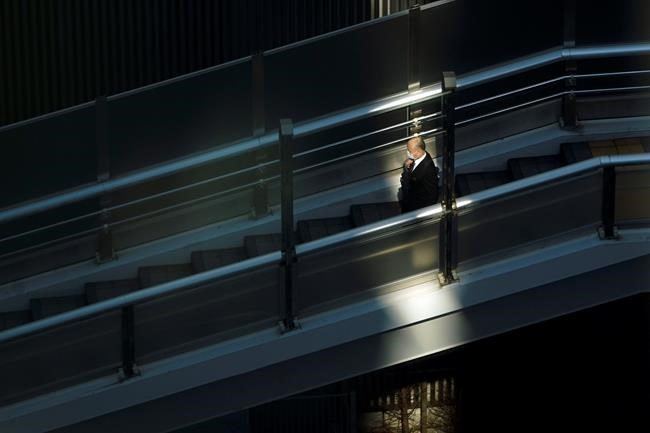
South Korea reported 256 additional cases Friday, raising its total to 2,022, with most occurring in the region around the city of Daegu. Many cases there have connections to a church and health workers are testing thousands of its members.
China’s National Health Commission reported 327 new cases and 44 deaths over the previous 24 hours, most of them in Wuhan, the city where the COVID-19 illness emerged in December. Mainland China’s total cases are now 78,824 with 2,788 deaths.
Even the furthest reaches of the globe were touched by the epidemic, with a woman testing positive in Tromsoe, the fjord-dotted Norwegian city with panoramas of snow-capped mountains. Health officials said the woman had travelled to China.
In Iran, the front line of Mideast infections, officials loosened rules barring the import of many foreign-made items to allow in sanitizers, face masks and other necessities, and removed overhead handles on Tehran’s subways to eliminate another source of germs. Peru put specialists on round-the-clock shifts at its biggest airport, Argentina took the temperature of some new arrivals and El Salvador added bans for travellers from Italy and South Korea.
The holy city of Mecca, which able-bodied Muslims are called to visit at least once in their lives, and the Prophet Muhammad’s mosque in Medina were cut off to potentially millions of pilgrims, with Saudi Arabia making the extraordinary decision to stop the spread of the virus.

With the monarchy offering no firm date for the lifting of the restrictions, it posed the possibility of affecting those planning to make their hajj, a ritual beginning at the end of July this year.
“We ask God Almighty to spare all humanity from all harm,” the country said in announcing the decision.
Disease has been a constant concern surrounding the hajj, with cholera outbreaks in the 19th century killing tens of thousands making the trip. More recently, another coronavirus that caused Middle East respiratory syndrome, or MERS, prompted increased public health measures, but no outbreak resulted.
It wasn’t just governments that were taking action: Cologne Cathedral, one of Germany’s main religious sites, was emptying its basins of ‘holy water’ to prevent the spread of infection. And Facebook cancelled its annual conference for developers.
COVID-19’s global creep had some countries warning people to obey containment measures.
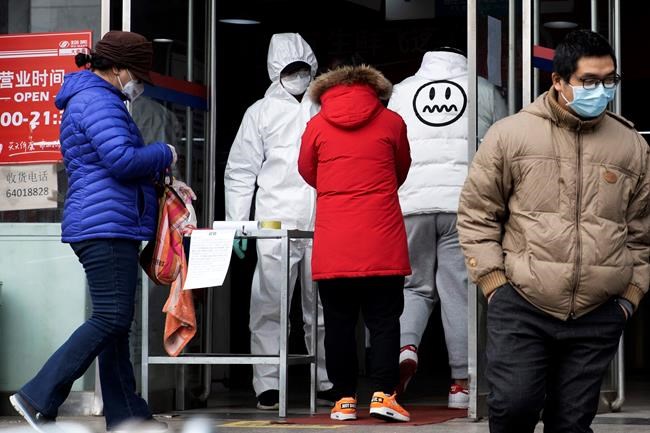
Singapore charged a former Wuhan resident who has the virus and his wife for allegedly lying about their whereabouts as officials tried to stem further infections. In Colombia, which has yet to report any cases, officials reminded residents they could be jailed for up to eight years if they violate containment measures. And in South Korea, the National Assembly passed a law strengthening the punishment for those violating self-isolation, more than tripling the fine and adding the possibility of a year in prison.
“It came later than it should have,” said Lee Hae-shik, spokesman for the ruling Democratic Party, calling for further non-partisan co-operation to address the outbreak.
Countries’ efforts to contain the virus opened up diplomatic scuffles. South Korea fought prohibitions keeping its citizens out of 40 countries, calling them excessive and unnecessary. China warned Russia to stop discriminatory measures against its people, including monitoring on public transit. Iran used the crisis to rail against the U.S., which it accused of “a conspiracy” that was sowing fear.
___
Gambrell reported from Dubai, United Arab Emirates. Contributing to this report were Tong-hyung Kim and Hyung-jin Kim in Seoul, South Korea; Jan M. Olsen in Copenhagen, Denmark; and Mari Yamaguchi in Tokyo.

